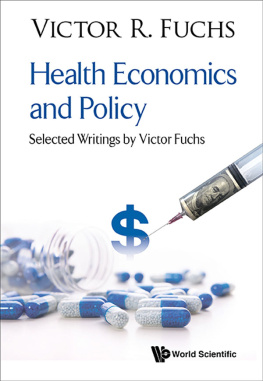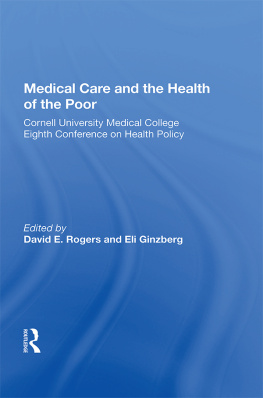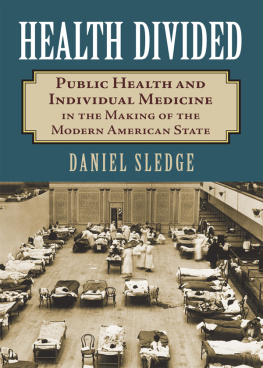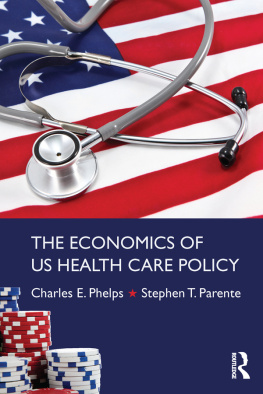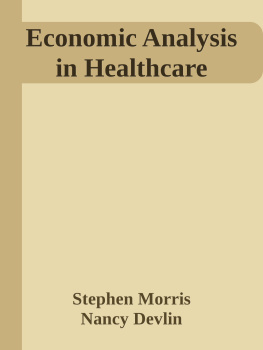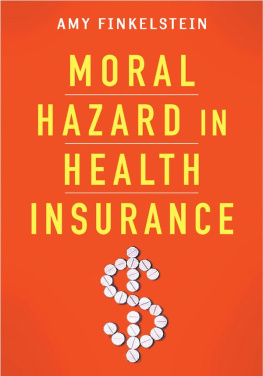Acknowledgements
This book includes papers, articles, speeches, and op-eds written by me (sometimes with co-authors) over a period of fifty years. It also includes my newly written introductions to eight parts and two invited Forewords that were written specifically for this book. My acknowledgements are, therefore, divided into two parts.
First, I acknowledge with gratitude the individuals who made direct contributions to the present volume. Alisha Nguyen, executive editor of World Scientific, started the project by inviting me to prepare a selection of my writings on health, edited the manuscript, and saw it through to its publication. Rossannah Reeves, my assistant for many years, took major responsibility for the volume, including assembling the manuscript, reading proofs, and advising me about many issues. Joseph Newhouse prepared superb comments on drafts of the eight introductions. Sir Angus Deaton and Victor Dzau wrote graceful, thoughtful Forewords from the perspectives of an economist and a physician. Their appreciation of my efforts to bridge the fields of economics and health mean a great deal to me. I thank my co-authors and previous publishers for readily waiving any possible copyright restrictions. The cover was designed by Jimmy Low, and the index was prepared by Jim Farned.
A second set of acknowledgements goes to the individuals and institutions who helped me produce the 40 pieces reprinted in this book. It is not feasible to mention them all here, but most are acknowledged in the introductions and footnotes of the individual contributions. Private foundations have been my principal source of financial support, allowing me to hire research assistants and buy back teaching time in order to prepare articles and books for publication. Two foundations who have played particularly important roles for me are the Commonwealth Fund and the Robert Wood Johnson Foundation. In the mid-1960s, while I was a full-time researcher at the National Bureau of Economic Research, I thought I would follow my study of the service sector with a new program in health economics. The Bureaus leaders were not enthusiastic, pointing out that research in such an obscure field would not enhance my career. Fortunately, I met Quigg Newton, President of the Commonwealth Fund, at a conference and he encouraged me to write to him about my ideas for health economics. When my five page letter to Mr. Newton quickly produced a generous grant from Commonwealth, the Bureau leaders withdrew their opposition and have provided enthusiastic support ever since.
The Robert Wood Johnson Foundation supported me for many years with grants which, even when modest in amount, were particularly valuable because they provided a great deal of flexibility. Thus, I was able to take advantage of unforeseen opportunities such as adding an excellent researcher to a project or acquiring a unique set of data.
I am very grateful to two institutions that have provided me with exceptional intellectual and administrative support: the National Bureau of Economic Research and Stanford University (since 1974). My desire to work a middle ground that combined economics and health was supported by them in many ways, long before the current popularity of inter-disciplinary research. The Bureaus emphasis on empirical research, policy relevance, and avoidance of partisan polemics provided an excellent fit with my values. I joined the research staff in 1963, served as a vice president 19681978, and am still proud to be a member.
Stanfords willingness to appoint me to the regular faculties in the economics department and the school of medicine (subsequently to a university chair) served my priorities exceedingly well. Although I discontinued full time teaching in 1995 at age 71, Stanfords faculty, post-doctoral programs, visitors, and students continue to provide a rich stimulating setting for me as I try to gain a better understanding of health and other social issues. The atmosphere at Stanford is exceptional. It was once described to me by a distinguished colleague who died too young to receive the Nobel Prize for his pioneering research as follows, At many universities the administrators act as if their job is to keep you from reaching your goal. At Stanford the administrators act as if their job is to help you reach your goal. (Amen.)
List of Co-Authors
M. Kate Bundorf
Mark Cullen, M.D.
Karen N. Eggleston
Ezekiel Emanuel, M.D.
Phillip Farrell
Alan M. Garber, M.D.
James S. Hahn
Edward F. X. Hughes, M.D.
John E. Jacoby, M.D.
Eugene M. Lewit
Donald A. Redelmeier, M.D.
James F. Silverman, M.D.
Contents
Published by
World Scientific Publishing Co. Pte. Ltd.
5 Toh Tuck Link, Singapore 596224
USA office: 27 Warren Street, Suite 401-402, Hackensack, NJ 07601
UK office: 57 Shelton Street, Covent Garden, London WC2H 9HE
Library of Congress Cataloging-in-Publication Data
Names: Fuchs, Victor R., author.
Title: Health economics and policy : selected writings by Victor Fuchs / by Victor R. Fuchs.
Description: New Jersey : World Scientific, [2018] |
Includes bibliographical references and index.
Identifiers: LCCN 2017051203 | ISBN 9789813232860 (hardcover)
Subjects: | MESH: Economics, Medical | Health Policy | United States | Collected Works
Classification: LCC RA410.A1 | NLM W 7 | DDC 338.4/73621--dc23
LC record available at https://lccn.loc.gov/2017051203
British Library Cataloguing-in-Publication Data
A catalogue record for this book is available from the British Library.
Copyright 2018 by World Scientific Publishing Co. Pte. Ltd.
All rights reserved. This book, or parts thereof, may not be reproduced in any form or by any means, electronic or mechanical, including photocopying, recording or any information storage and retrieval system now known or to be invented, without written permission from the publisher .
For photocopying of material in this volume, please pay a copying fee through the Copyright Clearance Center, Inc., 222 Rosewood Drive, Danvers, MA 01923, USA. In this case permission to photocopy is not required from the publisher.
For any available supplementary material, please visit
http://www.worldscientific.com/worldscibooks/10.1142/10786#t=suppl
Desk Editor: Alisha Nguyen
Typeset by Stallion Press
Email:
Printed in Singapore
To my children, their spouses, their children,
their spouses, and their children.
Foreword
Sir Angus Deaton, Ph.D.
Dwight D. Eisenhower Professor of Economics and International Affairs, Emeritus, Princeton University
2015 Nobel Prize Laureate in Economics
Victor Fuchs has been writing about health economics for more than half a century and the papers in this admirable collection span the whole period. Included are several of my favorite pieces, long known and a pleasure to read again, as well as several gems that I had missed. All the papers represent what Fuchs calls the economic perspective on health, of which Fuchs has long been the master. They go beyond any narrow conception of health, addressing questions in philosophy, medicine, demography, population health, individual health, public policy, insurance, and the industrial organization of healthcare. Health is the leading example of a topic that cannot be adequately addressed from any single discipline; economists must talk to (and listen to) physicians, and vice versa. Policy requires both; as Fuchs notes, The economic perspective alone is rarely sufficient for good policymaking, but it is usually necessary. To neglect it, to assume that resources are unlimited or that human behavior is insensitive to changes in incentives and constraints, is often an invitation to disaster. These words should be engraved on the walls of Congress.
Next page
